As part of our trip to Japan last year, we had a scheduled stop in Busan, S. Korea. I was keenly interested in visiting the Haedong Yonggung Temple which is quite unique among the temples of S. Korea. Most Buddhist temples are in the mountains or inland, but Haedong Yonggung abuts the shoreline.
The step on guide escorting us from the cruise ship to the temple was a young fellow named Jake and he had an excellent command of the English language. He used several current slang expressions such as “been there, done that.”
He was also very knowledgeable and full of factoids. In speaking with him later during the tour, he explained that he learned English exclusively via the Internet. I would say that is quite a feat considering the complexities of the language. Jake delivered us to the temple with increased enthusiasm.
From the parking lot, it was a brief walk to the temple grounds.
We were greeted by a series of large animal statues which appeared to be in ceremonial dress and represented the twelve signs of he zodiac.
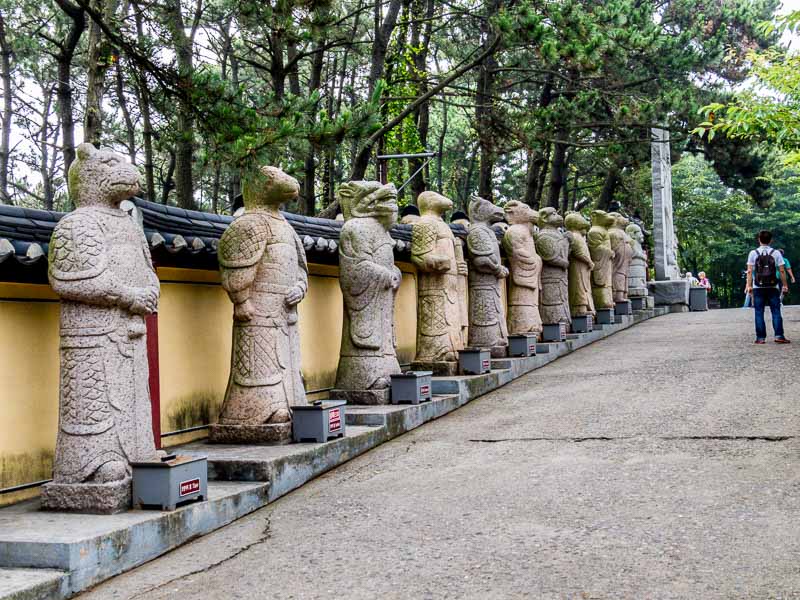
Here is a closeup of the dog statue.
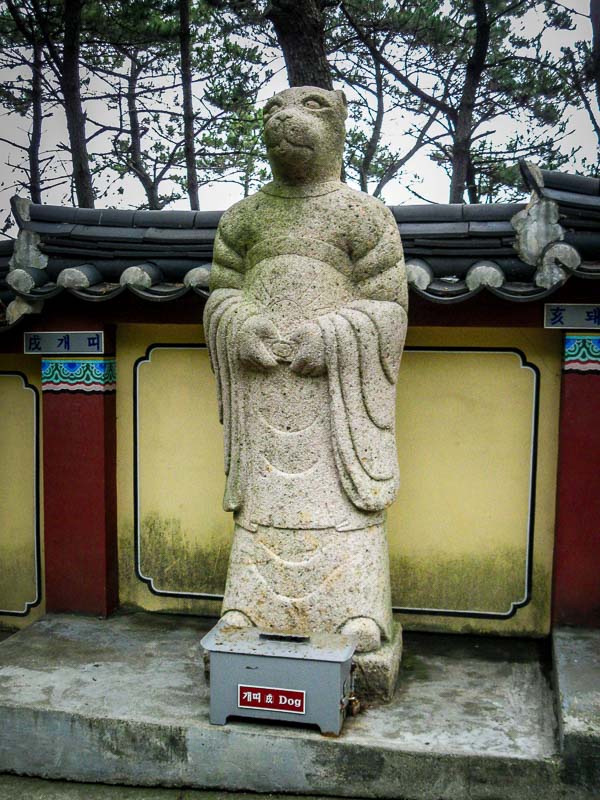
Soon after passing this walkway, we came to an ornate pagoda tower with a tire mounted in front of it. We were informed that this is used to pray for the health and safety of bus and taxi drivers.
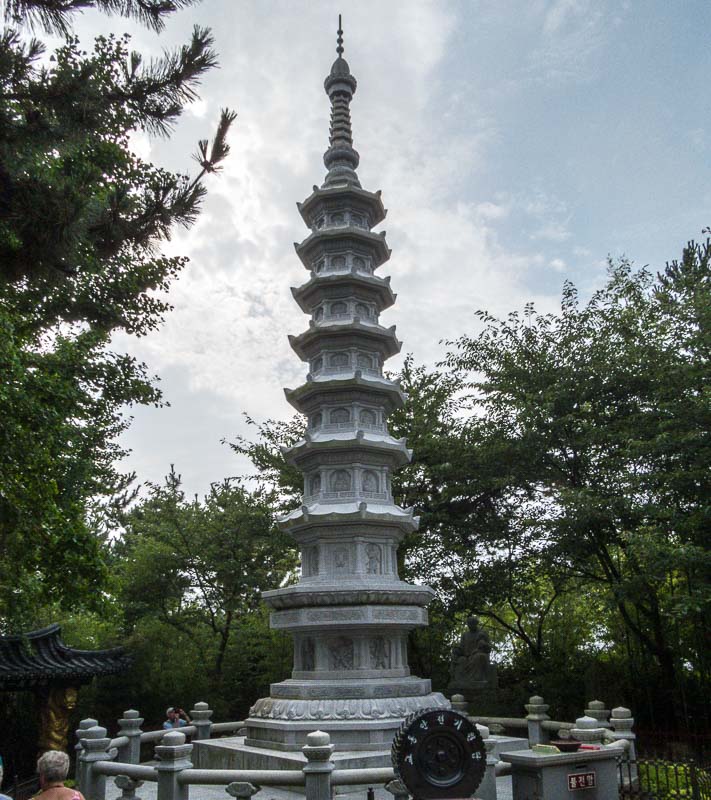
As we soon found out, there were many, many Buddhas and shrines that specialized in particular fields of endeavor. Getting to the actual temple building and grounds was a bit of a navigational challenge as there were ups and downs and all-arounds.
As anyone who does much walking an/or hiking soon learns for every downhill…
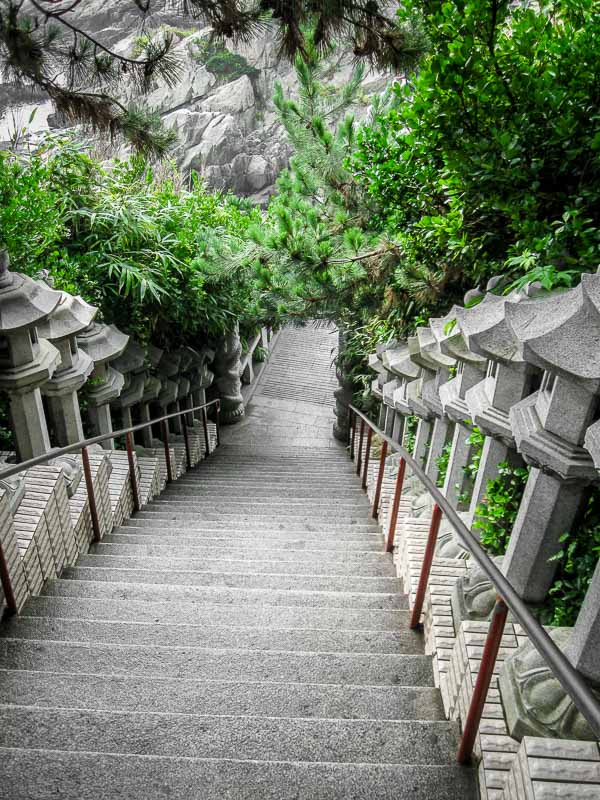
There is usually a concomitant uphill and I was informed that there are more than 100 steps.
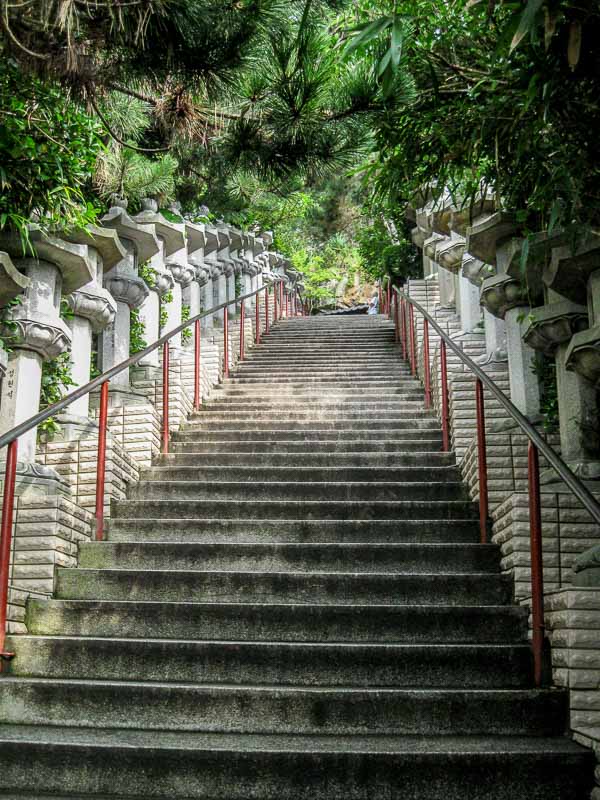
Soon enough, however, we made it to the temple grounds and I must say that it was worth every step.
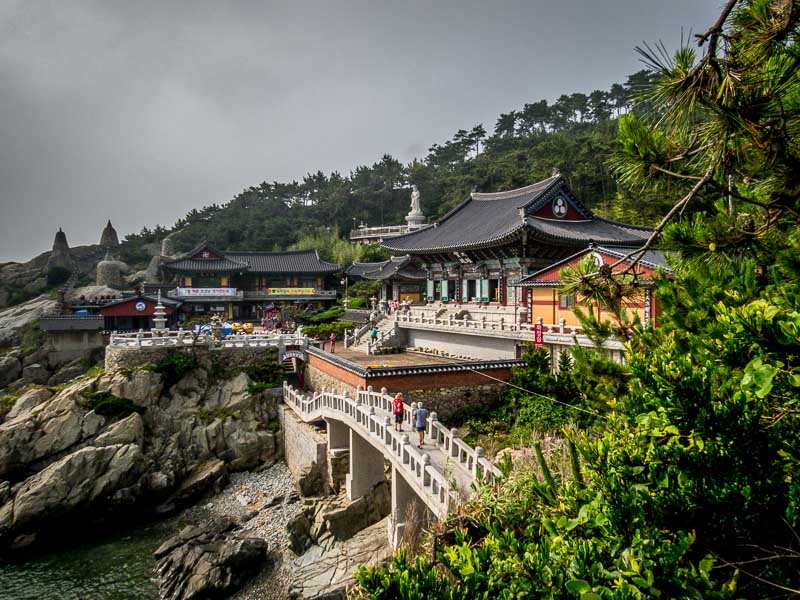
My first stop was this Buddha by the sea. How striking and powerful this statue appeared juxtaposed against the ocean and the rocks. How can there be a better venue for a religious shrine than the awe-inspiring craggy cliffs of the East Sea and Songjeong beach coastline?
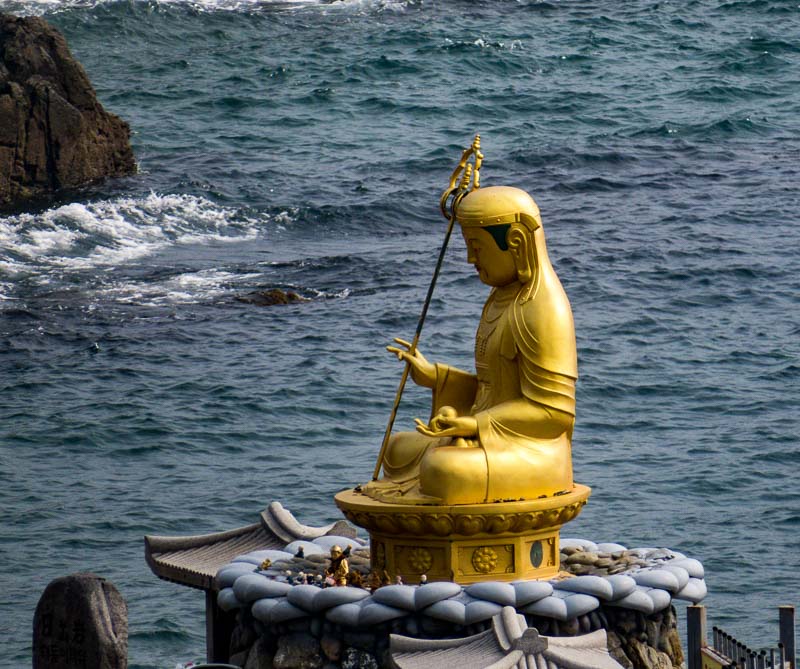
There were a number of smaller Buddhas or statues at the base of the larger monument.
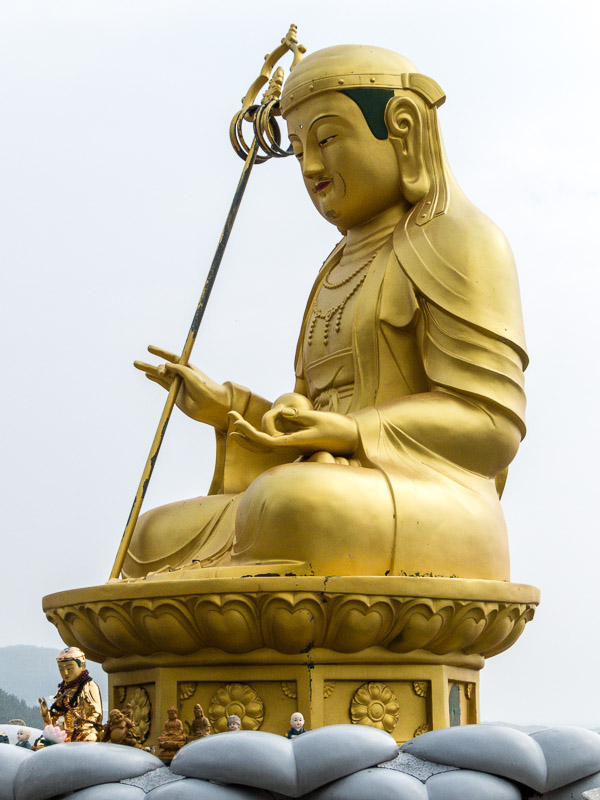
When viewed from the front, this incarnation of Buddha appeared very peaceful; almost trance-like.
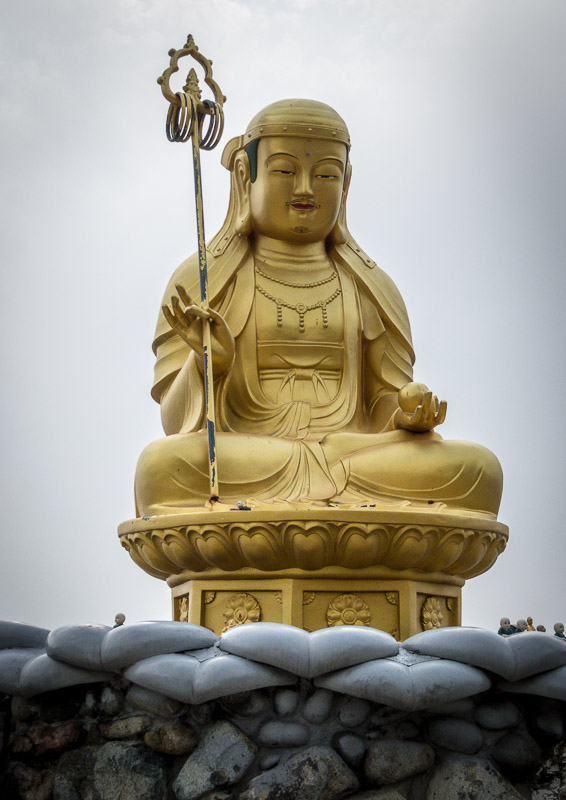
Below is a picture of the main temple area from near the statue of the golden Buddha pictured above.
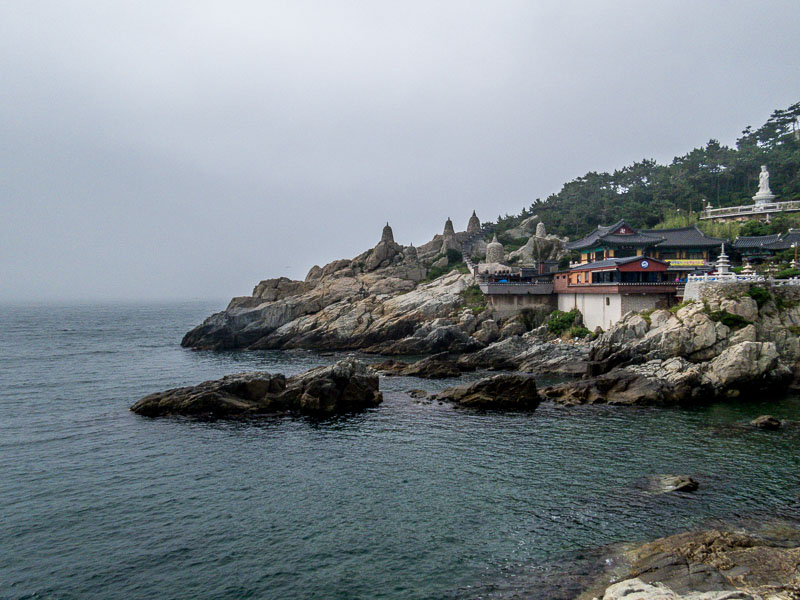
Here is a closer look at the main temple building.
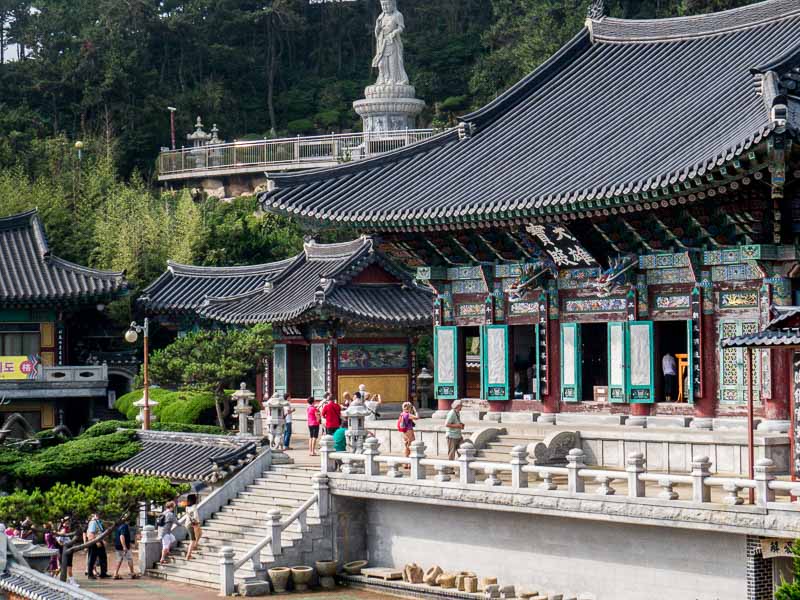
To accompany the numerous Buddha statues, there was also a very large statue of Bodhisattva, Goddess of Mercy.
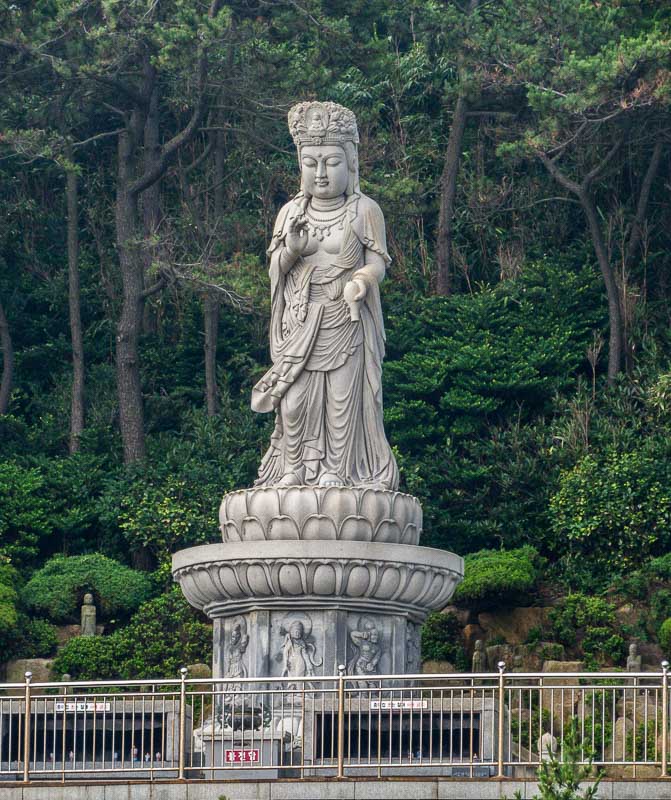
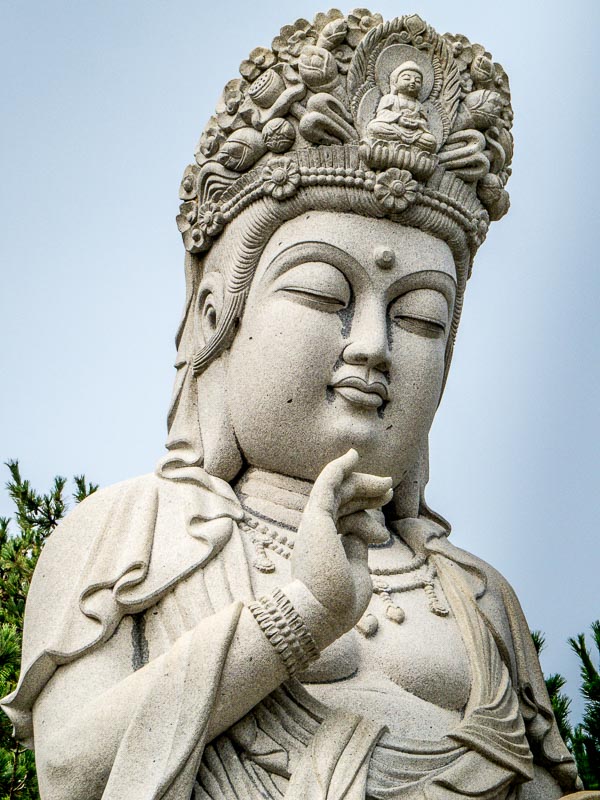
The main temple building housed additional golden ceremonial statues.
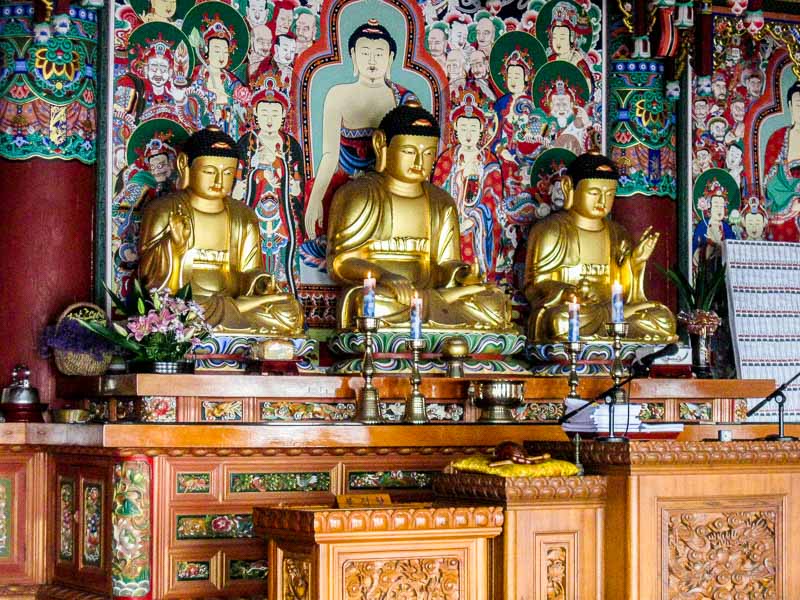
And a beautiful bell
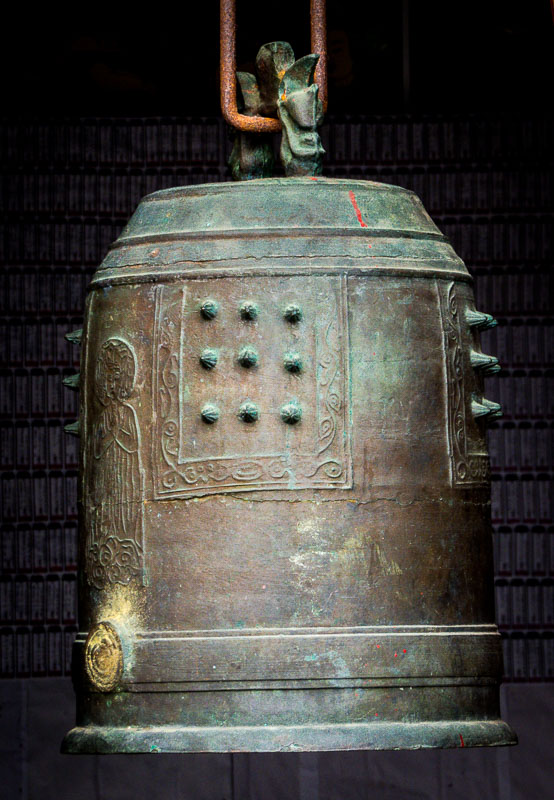
And alongside the building is a larger, seated, gold Buddha with a dragon-turtle statue in front.
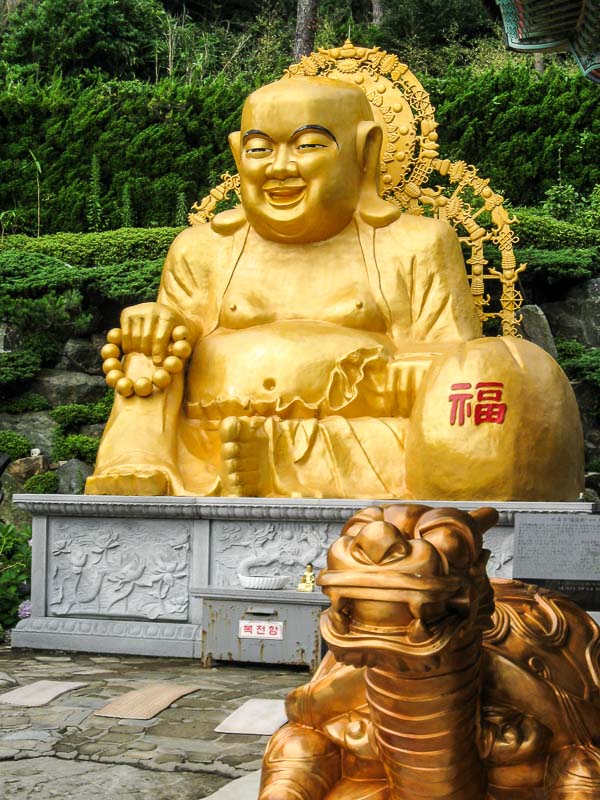
The structural details such as this ceiling (below) were not only practical, but works of art.
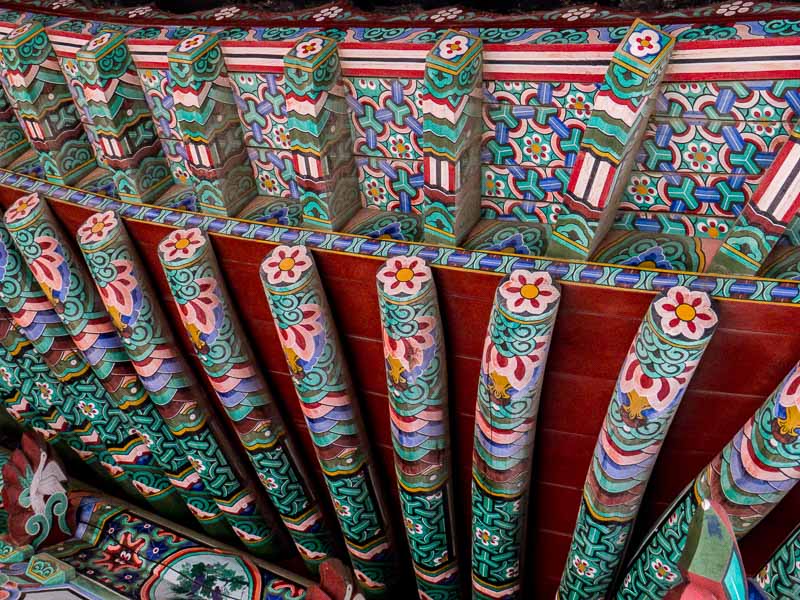
This is a detail of a section of one of the temple doors.
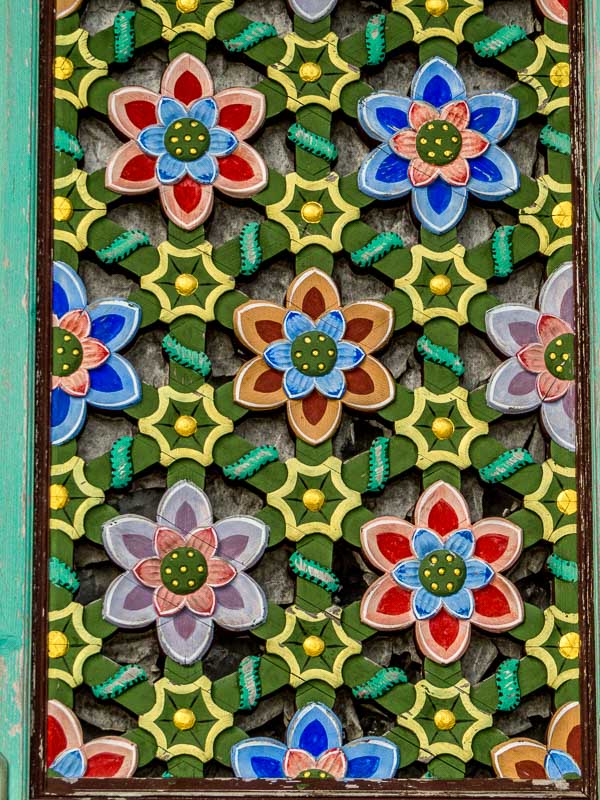
Also to be found on the temple grounds is a dragon sculpture which may explain why this edifice is sometimes referred to as the Dragon Temple.
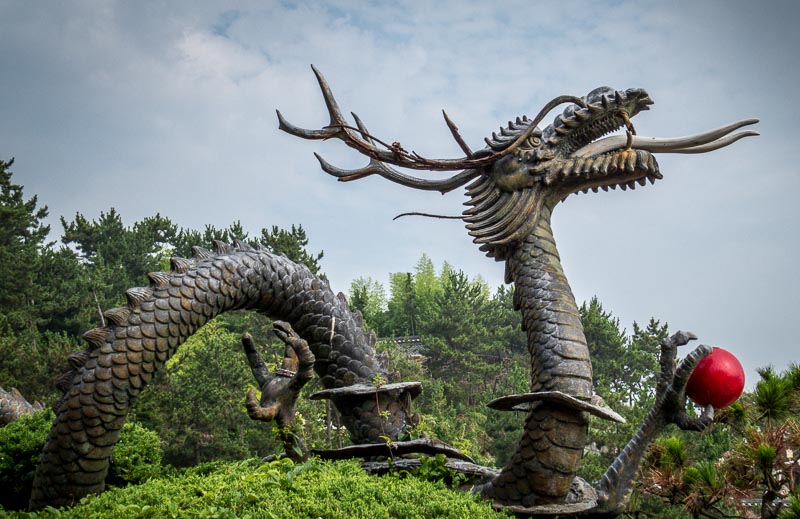
On our way back to the tour bus and away from the temple, we spotted tiny devotional figurines stacked on the rock outcroppings along the pathway.
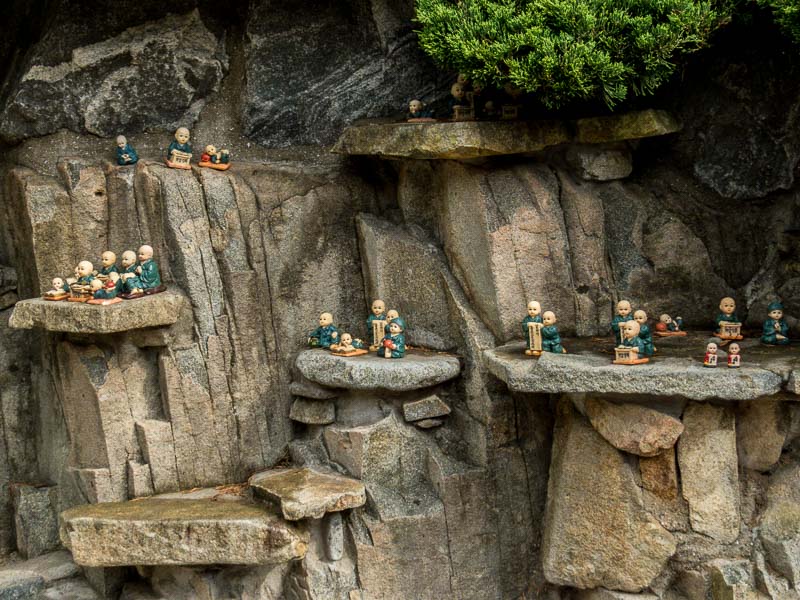
As a former educator, I couldn’t resist a picture of the Buddha for Academic Achievement.
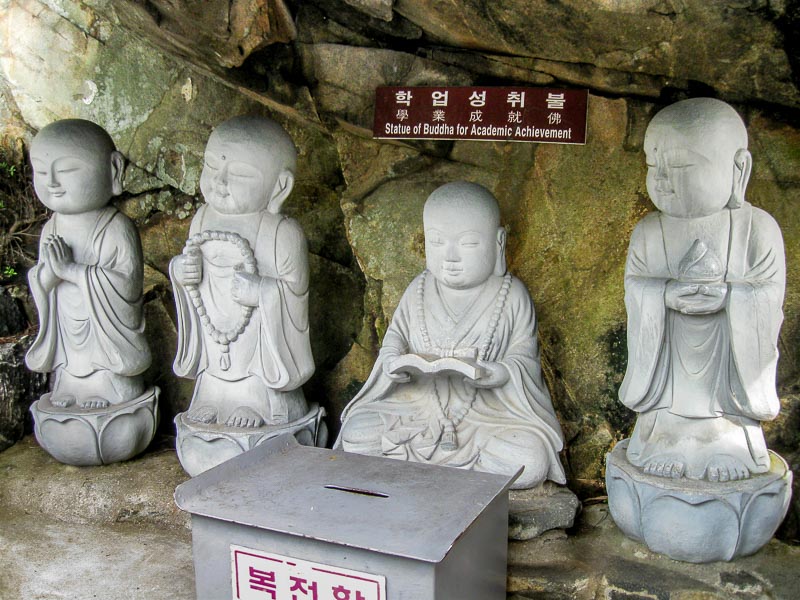
After the visit to the temple, if you managed to work up an appetite going up and down and all around the temple grounds, there are vendors with “edibles” to sell. Some may not be exactly what the western diet includes, but you know what they say about being in Rome!
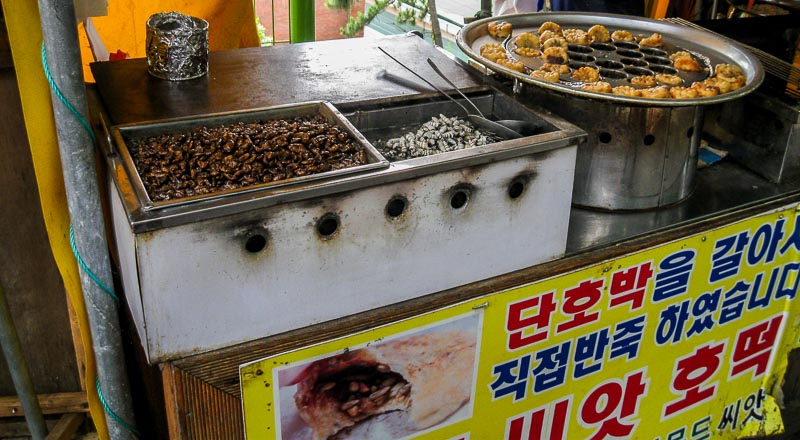
The visit to Busan will continue with Part 2